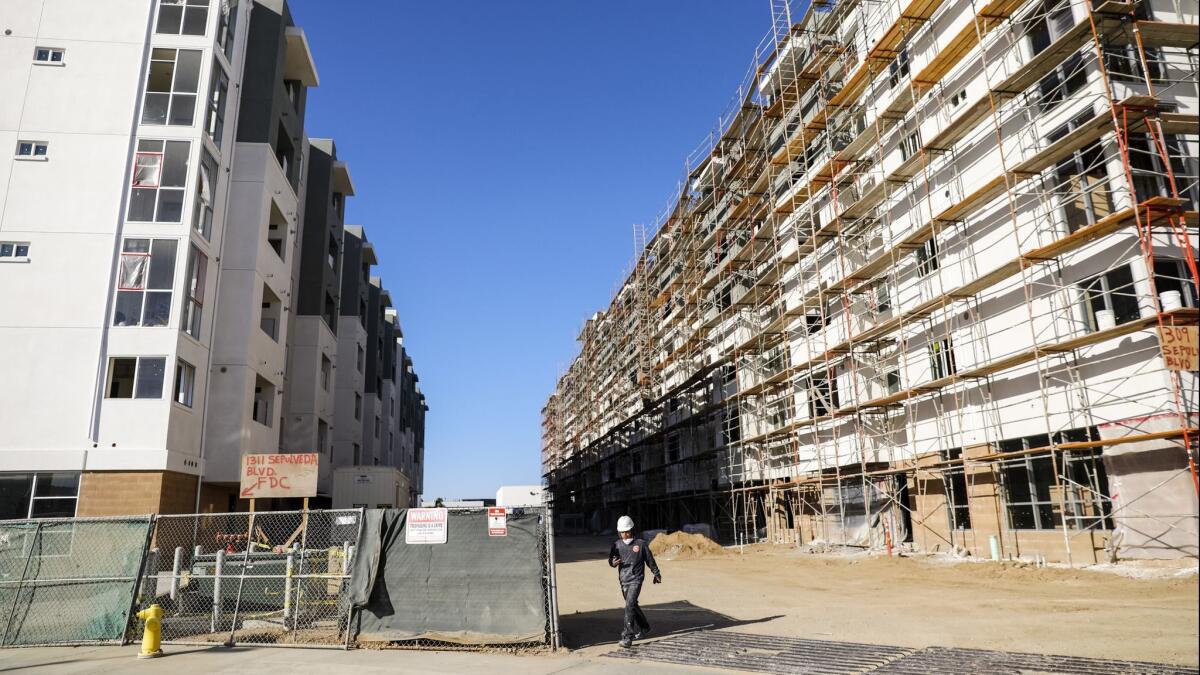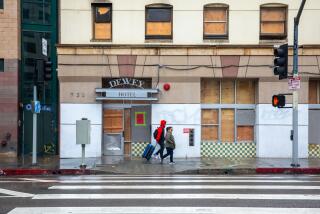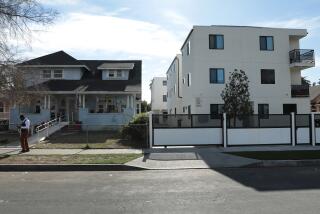Editorial: Sure, study a vacancy tax, but the solution to L.A.’s housing crisis is still to build

Plagued by a shortage of affordable housing and a worsening homelessness crisis, Los Angeles leaders are grasping for policies that could help ease the problem. The latest idea is an “empty homes penalty,” otherwise known as a vacancy tax. Given the depth of the city’s crisis, it’s worth exploring. In fact, the exploration alone could pay an immediate dividend by forcing the city to figure out how many vacant units it actually has, and why.
There have been plenty of plans floated to increase the housing supply, most notably by easing the construction of taller, denser apartment buildings. But skeptics have often pushed back, arguing that Los Angeles has a glut of vacant high-end houses and apartments. Those homes sit empty, they contend, because there aren’t enough wealthy tenants and property owners don’t want to lower the rents, or because the homes were purchased by foreign buyers seeking safe places to park their money. Therefore, under this argument, approving more high-end developments won’t help with the housing shortage.
But let’s be clear: Los Angeles’ affordable housing and homelessness crisis is the result of a decades-long failure to build enough homes to meet the growing demand. We have a housing shortage that is driving up prices, and the long-term solution is to greatly increase housing construction — at all levels of affordability.
Enter the Fray: First takes on the news of the minute »
To the extent that property owners are intentionally holding units vacant, that is exacerbating an already bad shortage. A vacancy tax or “empty homes penalty” could be a useful tool for the city to push those units onto the market, or to raise money to help fund the construction of more affordable housing. But before moving forward with such a policy, Los Angeles officials need more information about how many units are vacant, why they’re vacant, what kinds of units they are — and how effective the proposed tax would be at changing the situation.
A vacancy tax is having an impact in Vancouver. Since the Canadian city enacted its empty homes tax, a little over half of the previously vacant homes have moved onto the rental market, though it’s unclear whether rents have fallen as a result. The city collected roughly $38 million in tax revenue from property owners who kept their homes vacant.
Oakland is going in a similar direction; its voters passed a ballot measure last year to tax vacant parcels and unoccupied condominiums. The city estimates the tax will raise $10 million a year for homeless services, while encouraging property owners to develop vacant lots.
Los Angeles, too, would have to get voter approval for a vacancy tax. Council members are eyeing the March 2020 or November 2020 ballots. But first the City Council has to get solid data on what’s really happening in the rental market.
Follow the Opinion section on Twitter @latimesopinion and Facebook
More to Read
A cure for the common opinion
Get thought-provoking perspectives with our weekly newsletter.
You may occasionally receive promotional content from the Los Angeles Times.






